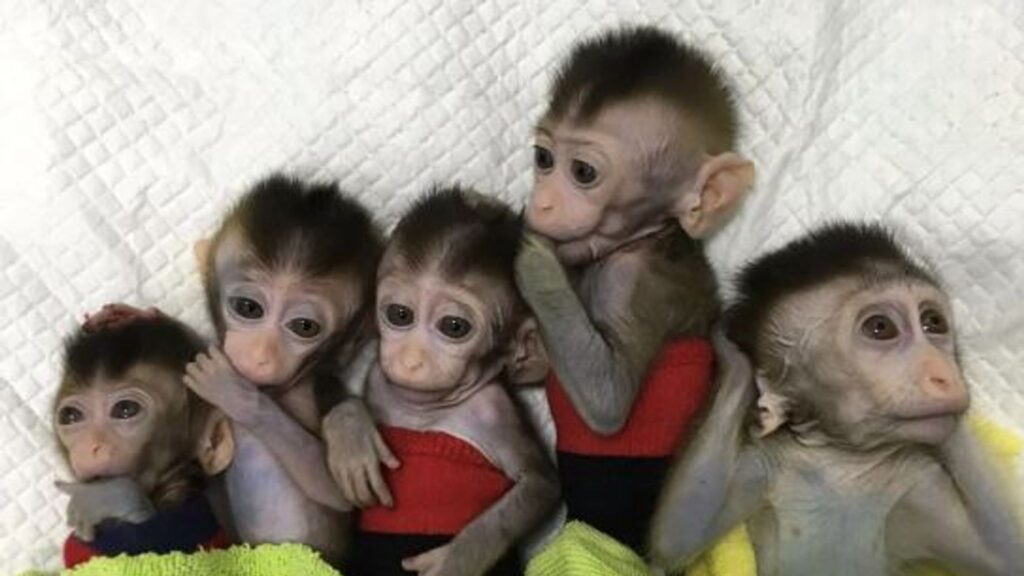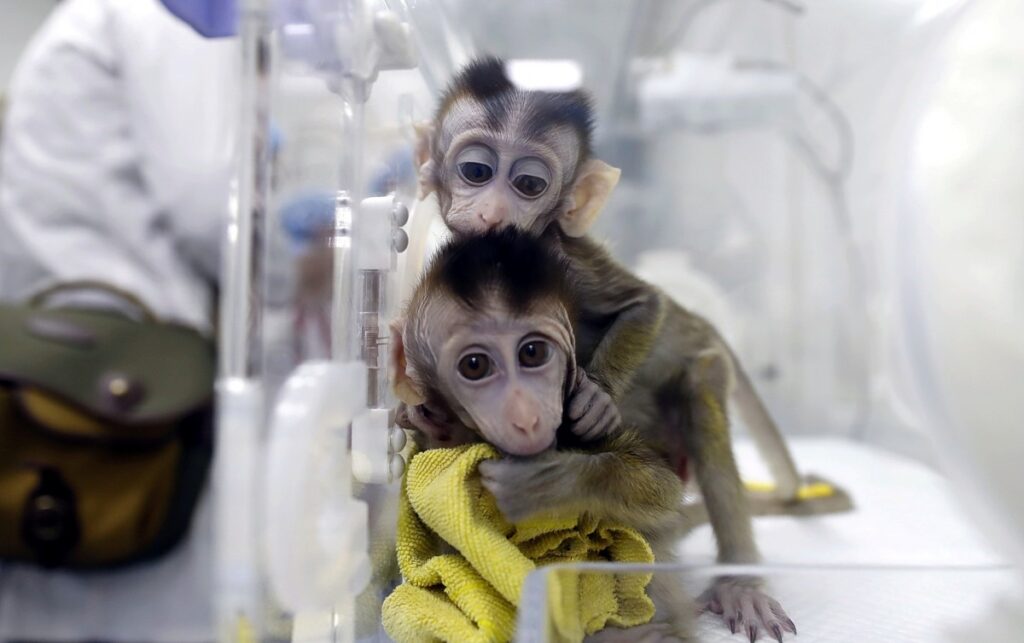
Chinese Researchers Generate Gene-Edited Monkey Clones with Mental Health Conditions
This pioneering research has far-reaching implications, as experts believe it could potentially pave the way for revolutionary treatments targeting a wide spectrum of human diseases, including neurological conditions and various forms of cancer.

A team of scientists in China has cloned five macaque monkeys with altered DNA using skin cells. They did this to better understand human diseases.
These cloned monkeys all have the same changed DNA, which causes symptoms similar to human conditions like anxiety, depression, and schizophrenia.
This research was carried out at a lab in China using the same technique that was used to create the first two cloned monkeys, Zhong Zhong and Hua Hua, last year.
The scientists hope that by making monkeys with the same genes and symptoms, they can test new treatments for diseases, including brain disorders and cancers. In this study, they deactivated the BMAL1 gene, which affects the body’s natural daily rhythms.
Next, the scientists extracted cells from one of the donor monkeys that had undergone gene editing and exhibited symptoms like decreased sleep and signs linked to mental health issues.
These donor cells were then employed to create a set of monkeys with the identical disease-causing mutation.
Dr. Hung-Chun Chang, a senior researcher involved in the project at the Chinese Academy of Sciences, stated, “Problems with our body’s natural daily rhythm can lead to various human illnesses, such as sleep disorders, diabetes, cancer, and neurodegenerative diseases.”
When the cloned monkeys were announced early year, other scientists hailed it as an impressive technical achievement.
Nonetheless, there were concerns raised about the ethical aspects of primate cloning. In the process of developing Zhong Zhong and Hua Hua, the scientists had to deal with numerous cloned embryos and monkeys that survived only for a brief period.
Primate research is subject to strict regulations, making it improbable that these techniques will be extensively employed in the near future.
However, the scientists involved in this research argued that cloning offers a way to decrease the overall number of monkeys used in experiments. This is because a uniform genetic background eliminates extraneous variables, resulting in more precise and informative data.
“This line of research will help to reduce the amount of macaque monkeys currently used in biomedical research around the world,” said Professor Mu-ming Poo “Without the interference of genetic background, a much smaller number of cloned monkeys carrying disease phenotypes may be sufficient for pre-clinical tests of the efficacy of therapeutics.”

The outcomes of their experiments have been documented in the English-language Chinese journal, National Science Review.
While the creation of cloned monkeys raised concerns about the potential application of this technique to humans, scientists have largely dispelled these fears.
It’s worth noting that gene editing in humans remains a subject of intense controversy. Notably, another Chinese researcher, Professor He Jiankui, faced worldwide condemnation after he publicly claimed to have produced the world’s first gene-edited babies.
Never miss any important news. Subscribe to our newsletter.
Related News


British Investor Who Predicted US Slump Warns of Next Crash

I’m a Death Doula: 4 Reasons I Believe Death Isn’t the End


Tech to Reverse Climate Change & Revive Extinct Species

AI Unlocks the Brain’s Intelligence Pathways

XPENG Unveils Iron Robot with 60 Human-like Joints

Can AI Outsmart Humanity?

11 ChatGPT Prompts to Boost Your Personal Brand

Keir Starmer Hints at Possible Tax Hikes on Asset Income

Navigating the Future of AI: Insights from Eric Schmidt
